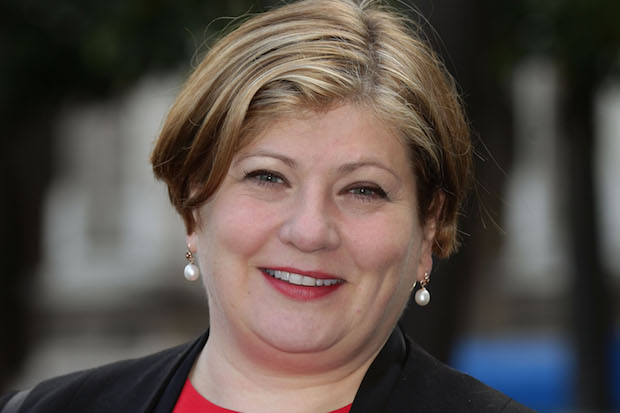Emily Thornberry has made it through to the second round of the Labour leadership contest, having secured the required number of nominations from MPs and MEPs at the eleventh hour. As I explained this morning, Thornberry had struggled to gain support from colleagues because of strained interpersonal relationships and her – somewhat unfair – reputation for sneering at working class voters. But her claim yesterday that she did have the numbers to get her over this threshold turned out to be true, and she will be the fifth candidate to go through to the next round. The others are Keir Starmer, Rebecca Long-Bailey, Lisa Nandy and Jess Phillips. Clive Lewis pulled out shortly before the 2.30pm deadline.
This next stage may be easier for Thornberry: the candidates must secure the backing of at least 33 constituency Labour parties or three affiliated organisations (of which two must be trade unions) in order to make it onto the ballot paper. She has a much higher profile among the membership thanks to her conference speeches and media appearances, and the interpersonal problems with MPs may turn out to be a plus point in the eyes of those voting at local party meetings. But there are fears in many of the campaigns that this stage is going to be tricky for everyone but Starmer, who may well gain a lot of nominations purely on the basis that he is the frontrunner in the contest and is therefore easily recognisable to members. Of course, Long-Bailey also has a very good chance at this stage, given she is likely to get the support of Corbynite grassroots organisation Momentum (its steering committee has already recommended Long-Bailey for leader and Angela Rayner for deputy, but plans to ballot members). The other candidates will need to rely on the support of CLPs whose MPs have supported them (and who listen to their MPs, which isn’t always a given), and the support of affiliates.
In the deputy race, there are also five candidates: Angela Rayner (on 88), Ian Murray (34), Dawn Butler (29), Rosena Allin Khan (23) and Richard Burgon (22). While the leadership race does reflect the genuine views of MPs as to who would be best-placed to lead the party, there has been a rather different dynamic in the race for second in command. Some of the candidates have made it through because of a campaign for diversity on the ballot, with MPs who really support one candidate lending their vote to a different one. It’s not quite the same argument as the ‘broaden the debate’ one that led to Jeremy Corbyn sneaking onto the ballot and then sweeping to power in 2015, but it’s still rather surprising that Labour MPs are even considering backing those they don’t agree with this time around.
Hustings are beginning this weekend, with a timetable for the party to move from city to city around Britain over the coming months. But the current plan has enraged some candidates too, as none of the events are being held in towns or areas where Labour lost many seats. Cumbria, for instance, saw two seats go Tory, and yet the nearest hustings are in Liverpool, which is solidly Labour already, or Glasgow (which isn’t very close either). All of them will be televised, though, and if they are like the events held in previous contests, the candidates quickly slip into giving the same speeches and answers as they did in a different part of the country the week before. What will be more interesting is what members want to hear from the candidates, and whether they’re still interested in purity over power.







Comments